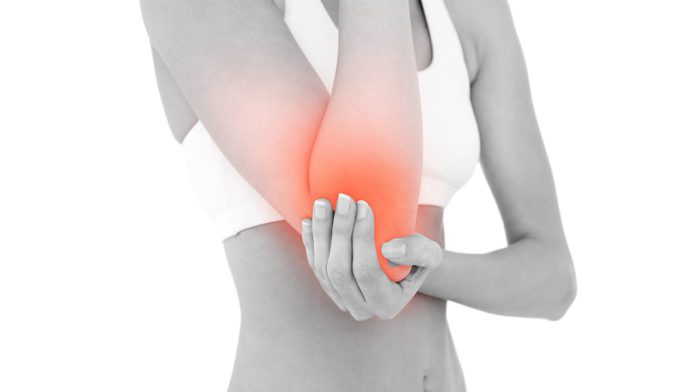
DOCTORS know the condition as lateral epicondylitis, although it’s more commonly known as “tennis elbow.” The term has entered wide use, though only a small group of people diagnosed with tennis elbow actually get it from playing tennis.
Tennis elbow is a common injury that will usually heal with minor treatment, but you have to give it time and rest.
Where is the pain?
Tennis elbow is a pain focused on the outside of the arm, where your forearm meets your elbow.
It’s related to a muscle and tendons in your forearm. Tendons connect your muscles to your bones. When you constantly use your arm in a repetitive motion, the tendons at the elbow end of a certain muscle – the extensor carpi radialis brevis (ECRB) muscle – may develop small tears. The tears lead to inflammation and may put stress on the rest of your arm, making it painful to lift and grip things. Left untreated, it can become chronic (that’s medical-speak for “ongoing”).
Tennis elbow affects up to 3 per cent of the population, particularly adults between 30 and 50-years-old, but less than 5 per cent of cases are linked to tennis.
What causes tennis elbow?
Tennis elbow is a classic repetitive stress injury caused by overuse. Any activity that strains the muscles around the elbow over and over again can cause it. There’s also a version golfers get called “golfer’s elbow.”
In tennis, hitting a backhand puts some stress on your forearm muscles, which repeatedly contract when you hit the ball. If you have poor technique or grip the racquet too tightly, that stress may increase in the tendons that connect the forearm muscles to the elbow. The tendons may get small tears.
The more you do it – and tennis is a game of repeated strokes – the greater the chance for tennis elbow.
You can get it from other racquet sports, such as squash. You can also get it from jobs or activities that involve repetitive arm motion, such as tree-cutting (repetitive use of a chain saw), painting, carpentry, playing some types of musical instruments.
Butchers, cooks, and assembly-line workers are among the groups that get it often.
Golfer’s elbow differs from tennis elbow in that the pain is focused on the inside of the elbow. But the causes are similar: tendon tears caused by repetitive movement, whether it’s a golf swing, lifting weights, or simply shaking hands.








